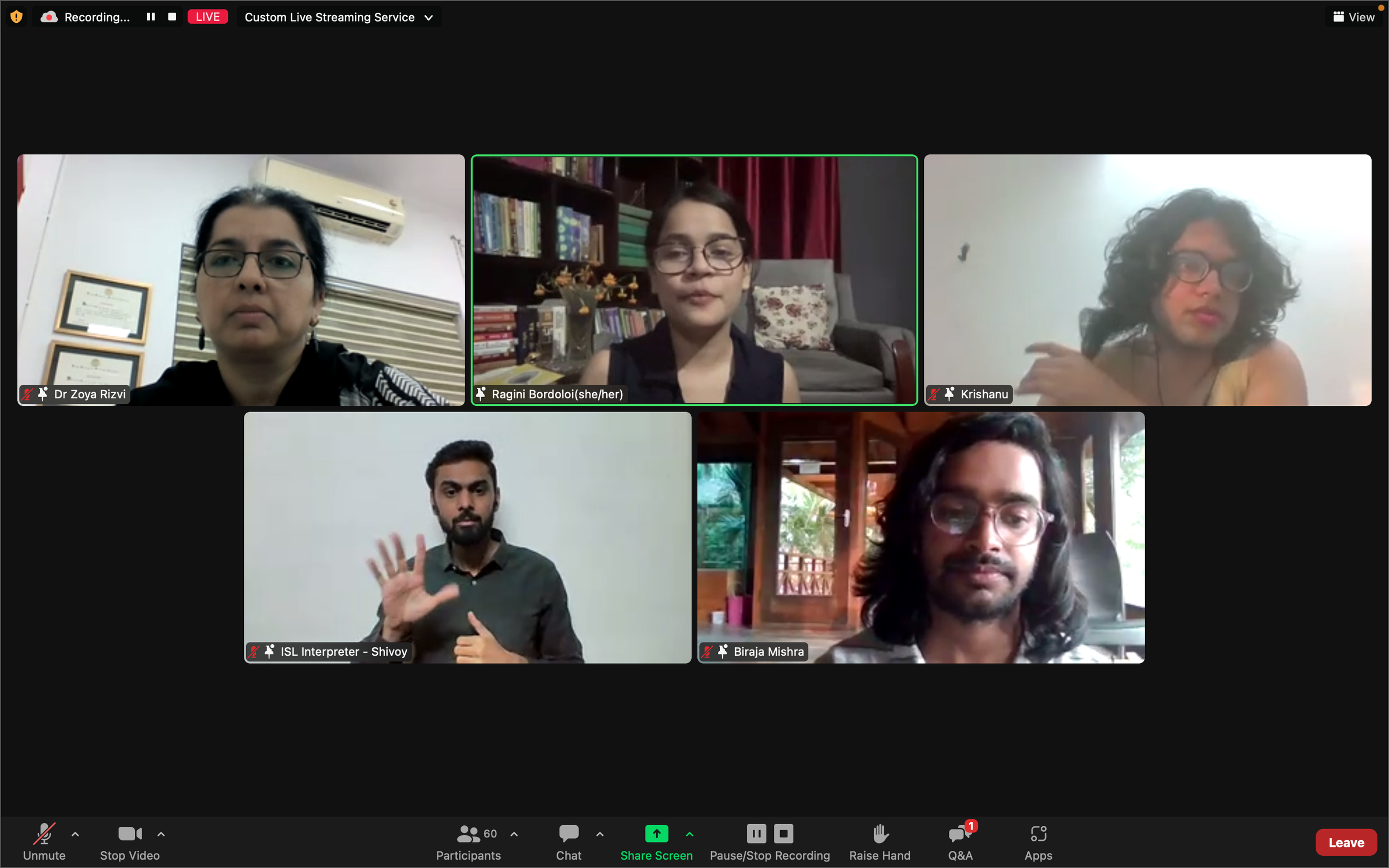
Launch of Factsheet - “The POCSO Act Adolescents’ Access to Abortion in India: Heightened Vulnerabilities, Health Risks, and Impact on their Rights”
In collaboration with the Center for Reproductive Rights (Asia Team), CommonHealth, YP Foundation, and Hidden Pockets
New Delhi, November 30, 2022 – The Law and Marginalisation Clinic, Centre for Justice, Law and Society (CJLS) at Jindal Global Law School in collaboration with the Center for Reproductive Rights (CRR), CommonHealth, YP Foundation, and Hidden Pockets, has released a factsheet titled “The POCSO Act & Adolescents’ Access to Abortion in India: Heightened Vulnerabilities, Health Risks, and Impact on their Rights.”
The factsheet was unveiled during a virtual launch by Dr. Zoya Rizvi (Deputy Commissioner (Adolescent Health), Ministry of Health & Family Welfare), Ragini Bordoloi (Founder, My Vagina, My Rights), Biraja Mishra (Researcher & Trainer, Gender & Sexuality, Nirantar Trust) and Krishanu (former SAFE Fellow, the YP Foundation).
In the welcome address, Brototi Dutta (Asia Advocacy Advisor, Center for Reproductive Rights) noted, "[d]espite amendments to MTP Act and judicial developments, adolescents’ access to abortion remains difficult."
The factsheet explains how the criminalisation of adolescent sexuality under the Protection of Children from Sexual Offences Act, 2012 (POCSO Act), which was introduced to protect children from offences of sexual assault, sexual harassment and pornography, has exacerbated barriers to safe and legal abortion access by adolescents.
Introducing the Factsheet, Dr. Alka Barua (Pediatrician and Programme Implementation Committee, CommonHealth) stated, "[i]n September 2022, the Court held that both Acts [POCSO Act & MTP Act] must be read harmoniously. The purpose of the Factsheet is to explain the legal framework surrounding access to abortion for adolescents. There is a lack of awareness amongst the service providers regarding their ethical and legal obligations. This Factsheet becomes important in bridging the gap."
Krishanu (former SAFE Fellow at the YP Foundation) also noted the stigma around adolescent sexuality and stated, "adolescents are often infantilized when talking about their access to abortion... there needs to be an understanding that the choices rest on the people whose bodies are concerned or in focus."
Highlighting a lack of recognition of adolescents’ agency, Dr. Zoya Rizvi (Deputy Commissioner (Adolescent Health) Ministry of Health and Family Welfare) highlighted, "only a small percentage of young people are educated on their sexual and reproductive health. We need to understand that adolescents will engage in sexual activity and intimacy. Therefore, the focus should be on ways to inform them of safe ways to access sexual and reproductive health services and make them easily available without any barriers. Adolescents must be empowered to make choices."
Although the provisions of the POCSO Act are intended to ensure effective reporting of child sexual abuse, the mandatory reporting provision under Section 19 of the POCSO Act, when read conjointly with the MTP Act, has created significant barriers to accessing safe and legal abortion services for adolescents, including:
a fear of prosecution among medical practitioners and their consequent refusal to provide sexual and reproductive healthcare, including abortion services, to adolescents.
a fear of prosecution among adolescents that, when they seek sexual and reproductive healthcare services, including abortion services, their partners will be prosecuted for statutory rape.
These barriers result in adolescents often seeking unsafe abortions or being forced to carry a pregnancy to term. Notably, these barriers are exacerbated for adolescents from marginalised groups owing to the intersecting oppressions on the basis of caste, class, religion, sexuality and gender identity.
Ragini Bordoloi (Founder of My Vagina My Rights) noted, "[t]he laws enacted to protect certain individuals can also be a hindrance to their access to abortion. There is a denial of adolescents’ sexuality, and it is not informed by a ground reality where there would inevitably be intimacy. Lack of sexual healthcare leads to seeking compromised or inadequate and unsafe healthcare services." Ragini also highlighted the need to broaden the understanding of sex and intimacy and move beyond centering heteronormative sex.
Biraja Mishra (Researcher and Trainer, Gender and Sexuality, Nirantar Trust) highlighted, "when we talk about reproductive rights, certain kinds of bodies are prioritized over others. No law addresses trans children or considers them or gives them agency. In such circumstances, policies cannot locate trans experiences. The question of accessibility and rights lies beyond the policy framework because policies do not account for trans people and marginalized castes." The panelists unanimously highlighted the importance of involving adolescents in policy-making decisions.
